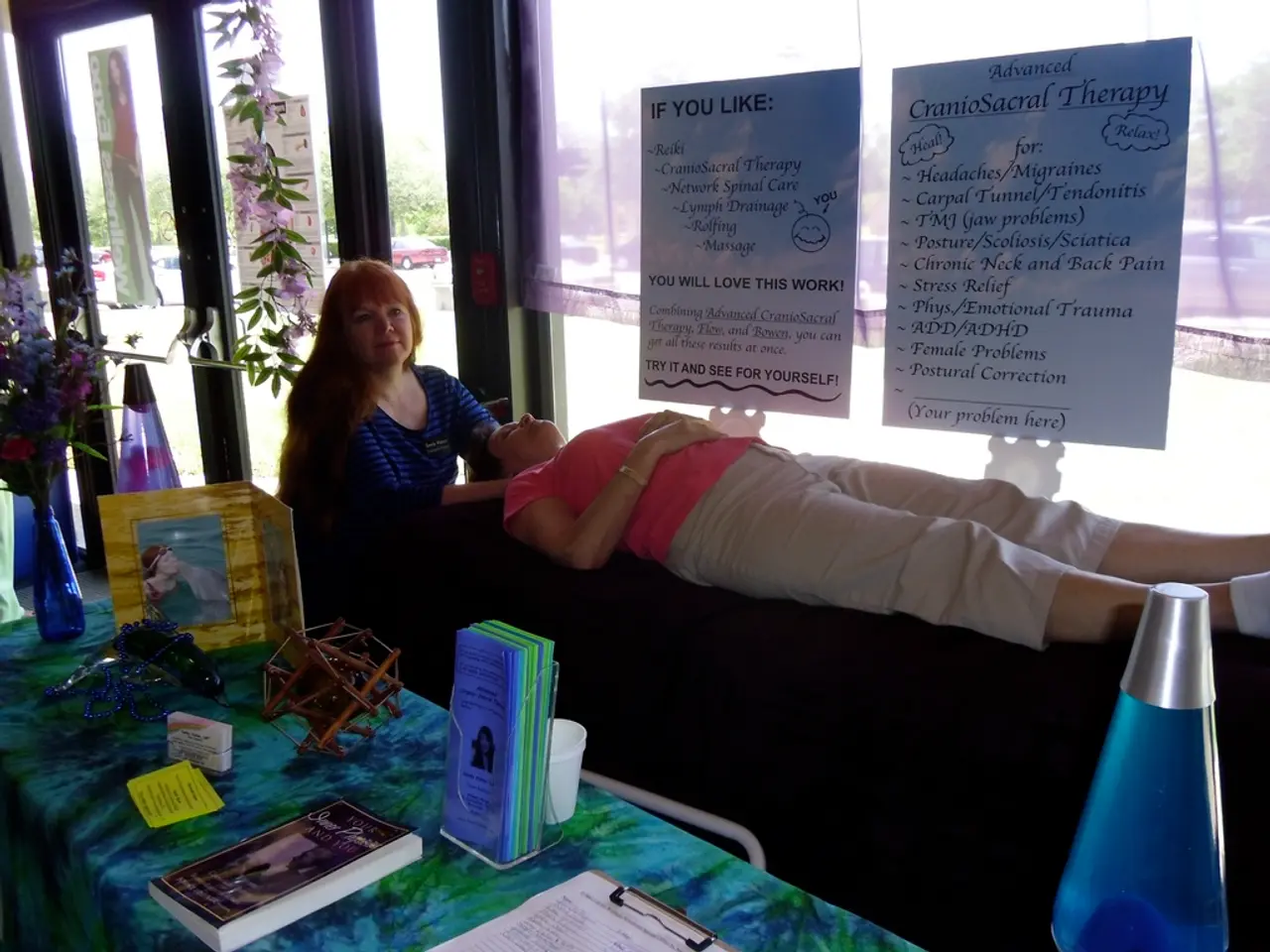Overcoming Adversity with Mental Fortitude: Triumph over Post-Traumatic Stress Disorder (PTSD) through a Constructive Perspective
In a world where stress and trauma are increasingly common, understanding and addressing Post Traumatic Stress Disorder (PTSD) among adolescents has become crucial. This article explores the available treatment methods, the experiences of one individual, and the role of support systems in the recovery process.
Adolescents facing PTSD often find solace in group therapy, a safe space where they can share their experiences with others who understand the challenges they face. This shared understanding can be a powerful tool in the healing process.
Trauma-Focused Cognitive Behavioral Therapy (TF-CBT) is the most strongly supported and widely recommended approach for adolescents with PTSD. This therapy helps adolescents work through trauma memories in a structured, safe environment, addressing negative thoughts and gradually exposing them to trauma triggers. Caregivers are often involved to support the adolescent's recovery.
Eye Movement Desensitization and Reprocessing (EMDR) is another effective treatment, particularly for younger populations. EMDR involves recalling traumatic memories while focusing on external stimuli such as guided eye movements to reduce distress related to trauma.
Written Exposure Therapy (WET), though more commonly used in adults, has shown promising results in adolescents. This therapy involves structured writing about the trauma and may require fewer sessions and have lower dropout rates compared to other treatments.
Mark, a survivor of PTSD, experienced symptoms upon returning to Australia, including anxiety, nightmares, and constant fear. He spent 4.5 months in a Turkish jail and lost his innocence during this time. Mark's experiences were harrowing, both in the Turkish jail and during the "Prozac era," when he was heavily medicated with sedatives.
However, Mark's story is one of hope and resilience. He is now gradually improving and Picking Up the Pieces, an Australian non-profit organisation dedicated to raising awareness, reducing stigma, and promoting early recognition and support for PTSD, is an important part of his life.
Celebrating small successes, even within the heart, is crucial for healing and growth for individuals with PTSD. Setting boundaries, learning to say "no" to unwanted commitments, and finding understanding, easygoing people helps limit toxic interactions for those dealing with PTSD.
PTSD is a common condition, particularly due to the growing emotional distance between individuals, societal expectations, and personal stressors. Brain fog and energy fluctuations are common challenges faced by individuals with PTSD, and tasks should be time-framed based on available mental energy.
In elementary-age children, PTSD symptoms can include fear, sleep disturbances, and regression. Adolescents' symptoms closely resemble those of adults, with impulsivity, aggression, and traumatic reenactment being particularly prominent.
Spiritual growth can offer comfort during times of stress and anxiety for those with PTSD. Regular medical check-ups are essential when medication, such as antidepressants, anti-anxiety drugs, sleep aids, and prazosin, are prescribed for PTSD treatment.
In conclusion, effective treatment for adolescents with PTSD primarily includes trauma-focused psychotherapies, with TF-CBT, EMDR, and WET being the most common and effective methods. Biological treatments exist but are generally considered secondary to psychotherapy for adolescents. With the right support, understanding, and treatment, individuals with PTSD can find hope and healing.
Adolescents dealing with PTSD may find comfort in group therapy, where they can share their experiences and draw strength from others facing similar challenges. Trauma-Focused Cognitive Behavioral Therapy (TF-CBT) is a widely recommended approach for adolescents with PTSD, providing a structured, safe environment for addressing trauma memories and negative thoughts.




